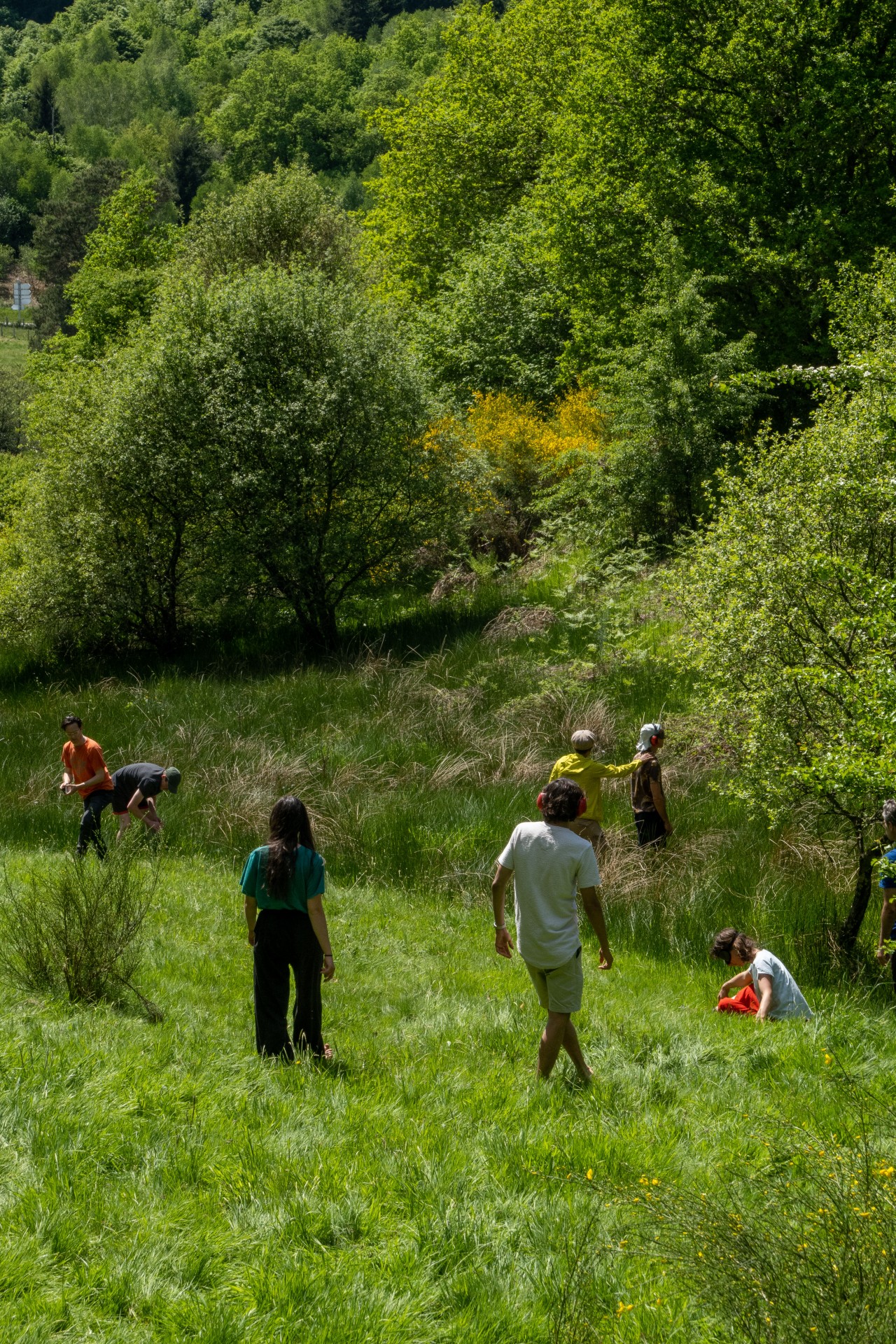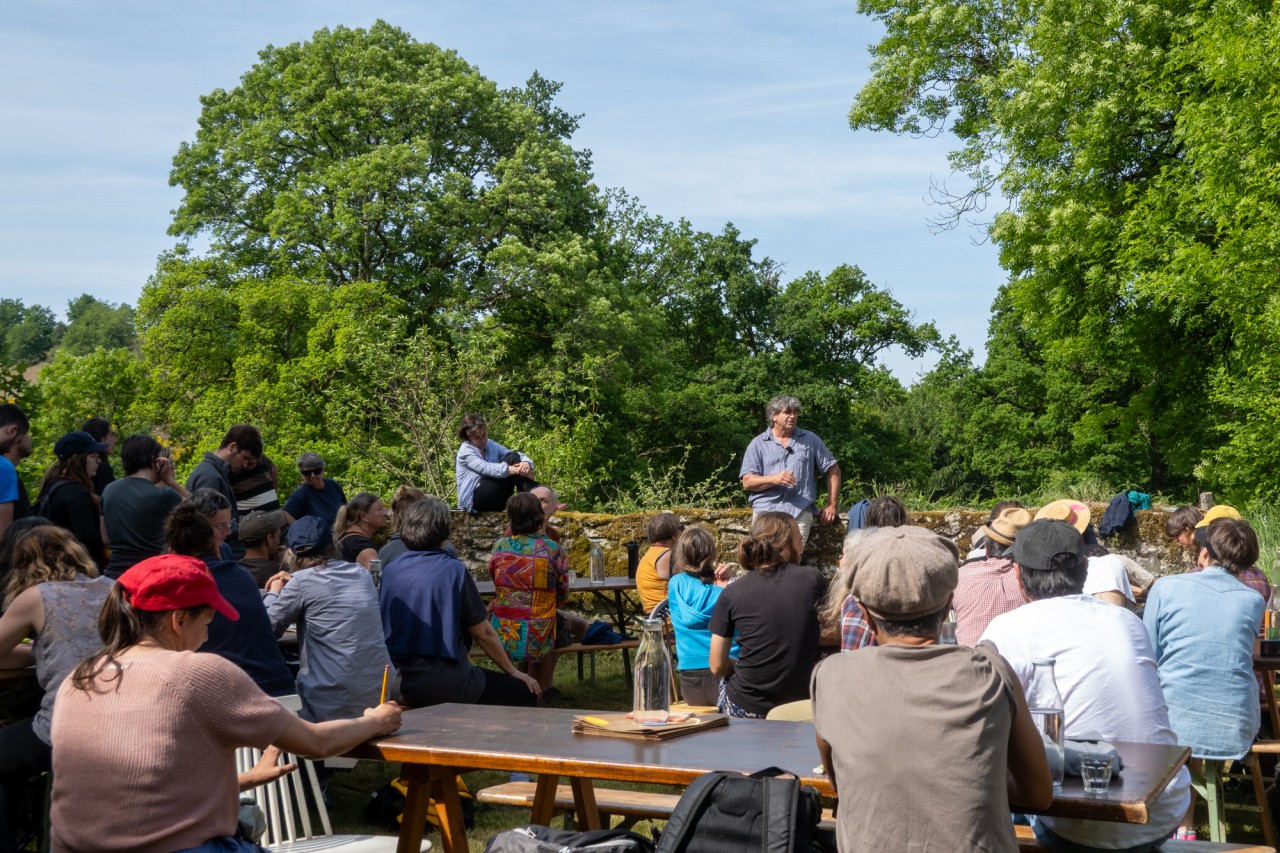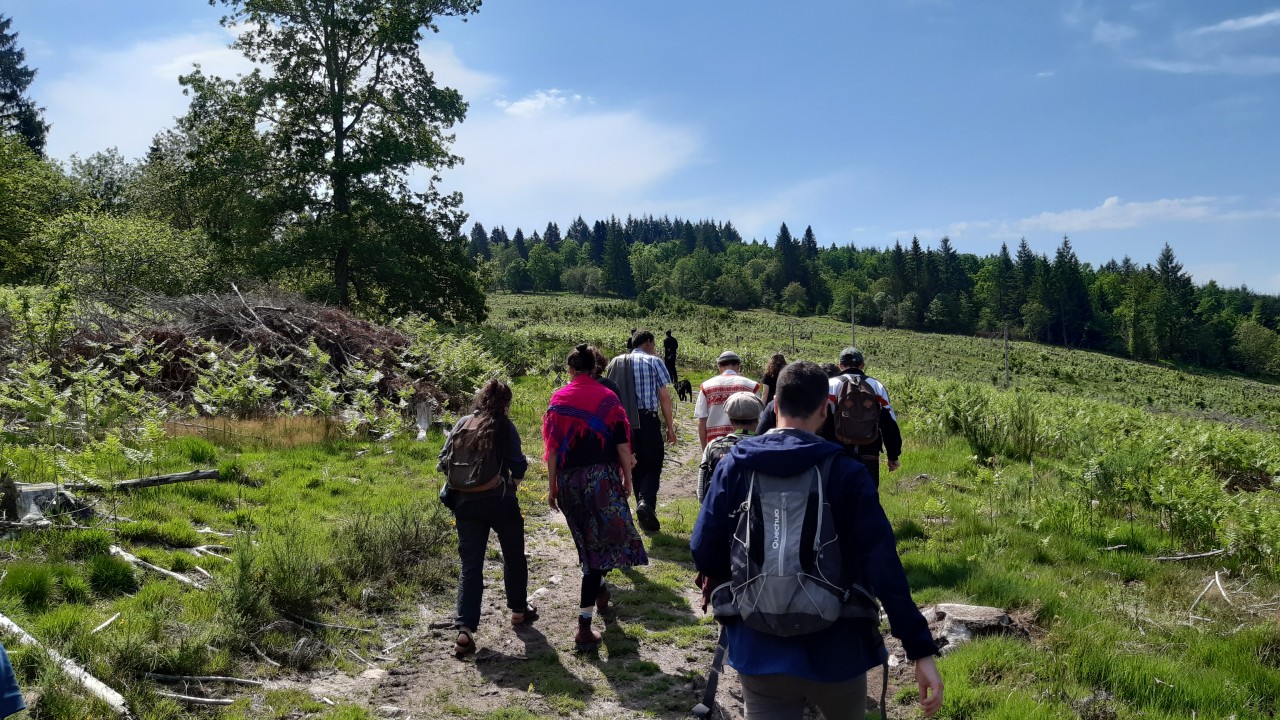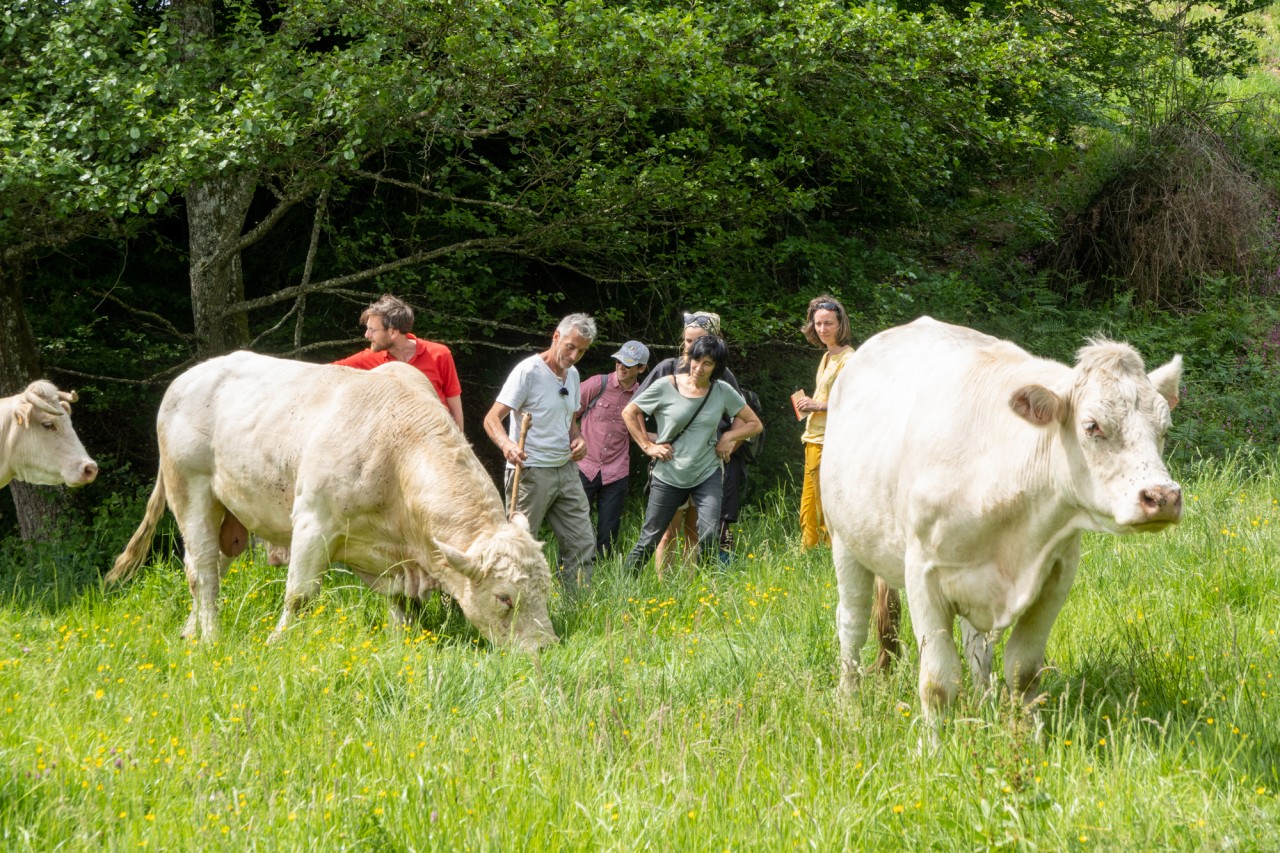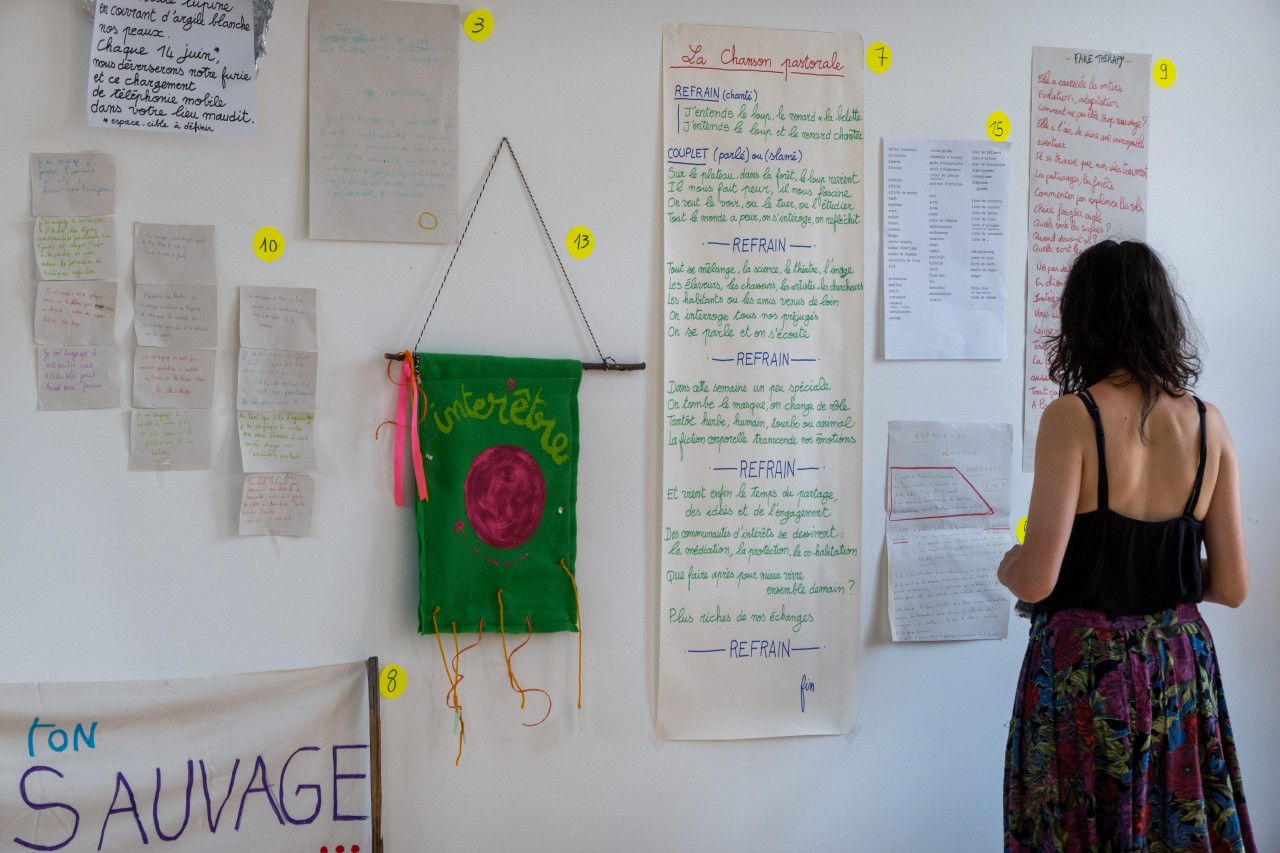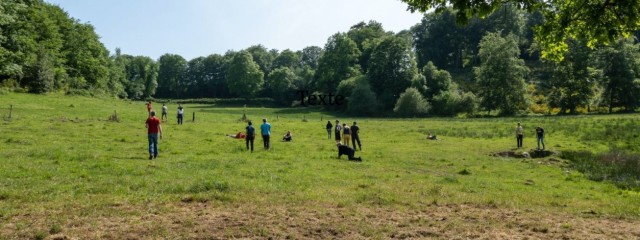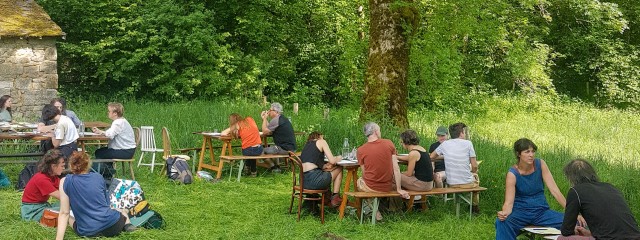Faire Assemblée Pastorale with the return of the wolves
From farm to farm in the Limousin Mountains, May 17-21, 2022
The Faire Assemblée Pastorale (FAP ) week is an initiative led by Quartier Rouge, engaged since 2017 in mediations with a network of breeders, researchers, artists, local residents and institutions around cohabitation with the return of wolves to the Montagne Limousine.
For five days, some sixty people - breeders, researchers, artists, students, residents - gathered in the Montagne Limousine to cross a landscape of practices together. From farm to farm, moor to forest, they experiment with practices to imagine forms of pastoral assembly in the face of the return of wolves to the Montagne Limousine.
Day 1 - Ferme de Lachaud, Gentioux
Raising landscapes
In the morning, Johanna Corbin and Frédéric Lagarde open the doors of their farm. Peat bogs, molinies, sheep and guard dogs make up an environment that is both fragile and composite. We discover animal husbandry as an art of care. The day continues with bodily and speculative practices: pastoral dance trek with Robin Decourcy, animal communication with Charlotte Letient, multispecific controversy with Pascal Ferren. Bodies move, perceptions sharpen, roles shift. The group gradually becomes a fluid, heterogeneous but attentive assembly.
Day 2 - Haute-Besse, La Villedieu
Exchanging roles, following in the footsteps
Thierry Letellier, farmer and mayor, presents the landscapes of his childhood, their transformations, and the choices that need to be made in the age of the wolf. Local hunters and breeders join in the discussions. A role-play simulating a prefectural meeting, led by Farid Benhammou, highlights the tensions between agricultural, environmental and institutional interests. Jessica Hureaux proposes a cartography of wild presences based on photographic traps set beforehand. The day closes with a landscape reading at l'heure bleue with guide Stéphane Grasser, where geology meets storytelling. We begin to feel that thinking together requires shifting frames, opening up other registers.
Day 3 - Le Goutailloux, Tarnac
Reopening the milieu
On Léo Pauwels and Namik Bovet's farm, the focus is on the soil, the clear-cuts, the balances to be reconstituted. Here, farming practices are invented in dialogue with forest ruins. The Groupe herpétologique et mammalogique du Limousin (Limousin herpetological and mammalogical group) presents a tool for assessing the risk of predation. At the same time, participants are practicing ecological fictions, inventing ways of thinking about and recounting cohabitation, based on what they have seen, felt and experienced. Each group begins to name its own terms and draw up its own questions. The assembly grows denser.
Day 4 - Saint-Frion
Incorporating cohabitation
Éric Moreau welcomes visitors to his land. The issues at stake become clearer: fences, grazing timeframes, silvicultural practices and subsidy systems outline a territory of uncertainty and negotiation. A discussion opens around the conflict of uses, not to resolve it but to feel its lines. The practices proposed invite us to refine our perceptions, to make visible the forces at play, to feel how our bodies adjust or resist.
Day 5 - Felletin train station
Landing: make yourself present
On the last day, at the Felletin station, the groups gather around the traces collected throughout the week: letters, cards, words, drawings, memories. The aim is not to conclude, but to deposit what has been transformed. Forms emerge: archipelagos of terms, constellations of questions, fragments of assemblies to come. Time becomes porous, voices respond to each other. This landing ritual is both a balance sheet and a threshold: a transitory space from which other ways of meeting, listening and composing might emerge.
Faire Assemblée Pastorale did not produce a solution, but it did provide an experimental environment, a space-time for experimenting with cohabitation - not just with the wolf, but with uncertainties, disagreements and otherness. Prototypes of assemblies with no mandate or majority, but with shared practices, situated environments and discreet powers of transformation were tested at the end of this immersion on farms.
This transformative week-long experience saw a collective traverse a landscape of practices linked to the challenges of cohabitation with living things, with the return of wolves to the area as a trigger. By using the farm as a place to share a variety of practices, this experiment suggests a broader way of thinking about how the farm and its environment become a political space, a laboratory for the future. From farm to farm, and by moving away from the emergency situation raised by the return of wolves, it becomes possible to take into account the positive roots of cohabitation. What's at stake in the experience is the trajectory of each individual and of the group: the way in which questions, observations and intentions are actualized day after day, through a variety of practices. Through practice, participants discover new ways of doing, seeing and feeling. By practicing together, they encounter themselves simultaneously as living beings, individuals, breeders, partners, walkers, elected representatives, naturalists... The aim of this experience is to prototype or identify relevant territorial assemblies to formulate new territorial projects that take into account cohabitation with living beings. The week concludes with a landing ritual to get a feel for the dynamics at work that could form future assemblies.
Program design and event coordination were led by Quartier Rouge with Benoît Verjat, in dialogue with Johanna Corbin, Thierry Letellier, Éric Moreau, Léo Pauwels (breeders and hosts), Boris Nordmann (artist) and Patrick Degeorges (philosopher).



